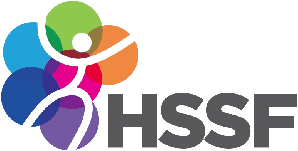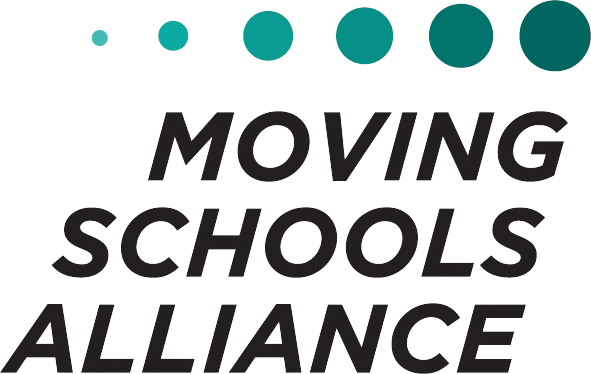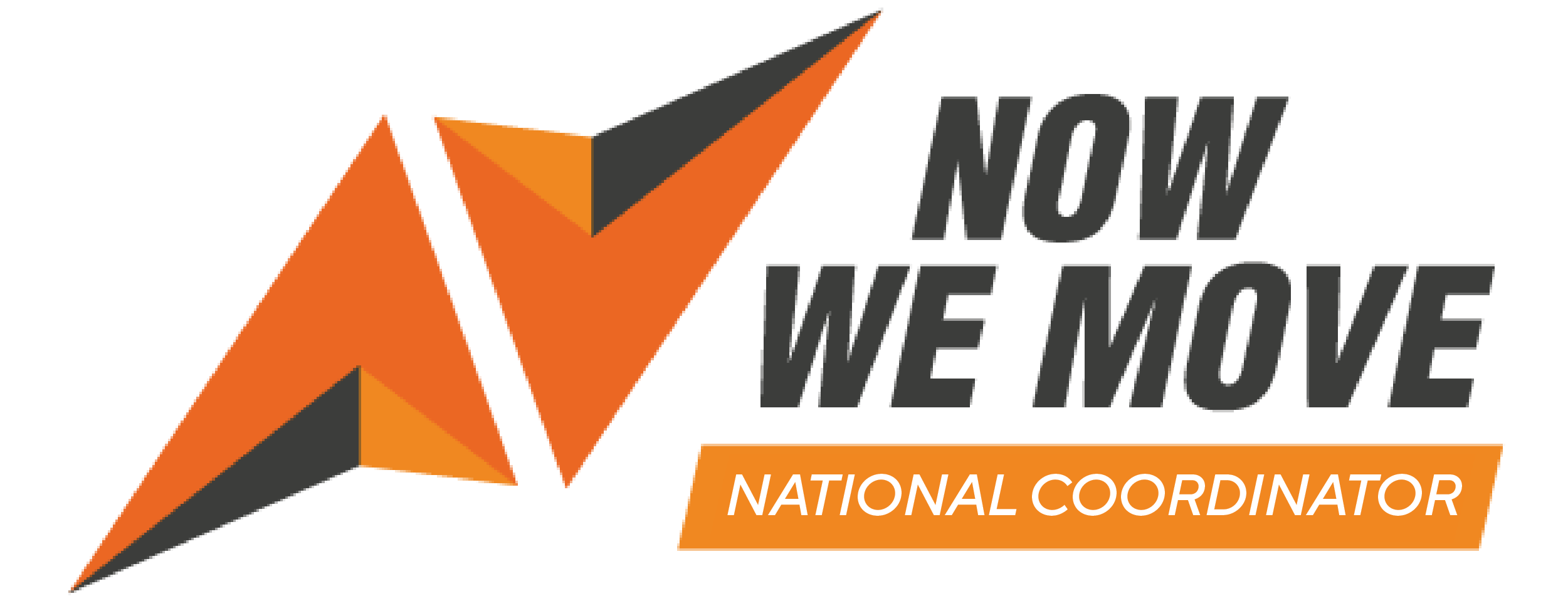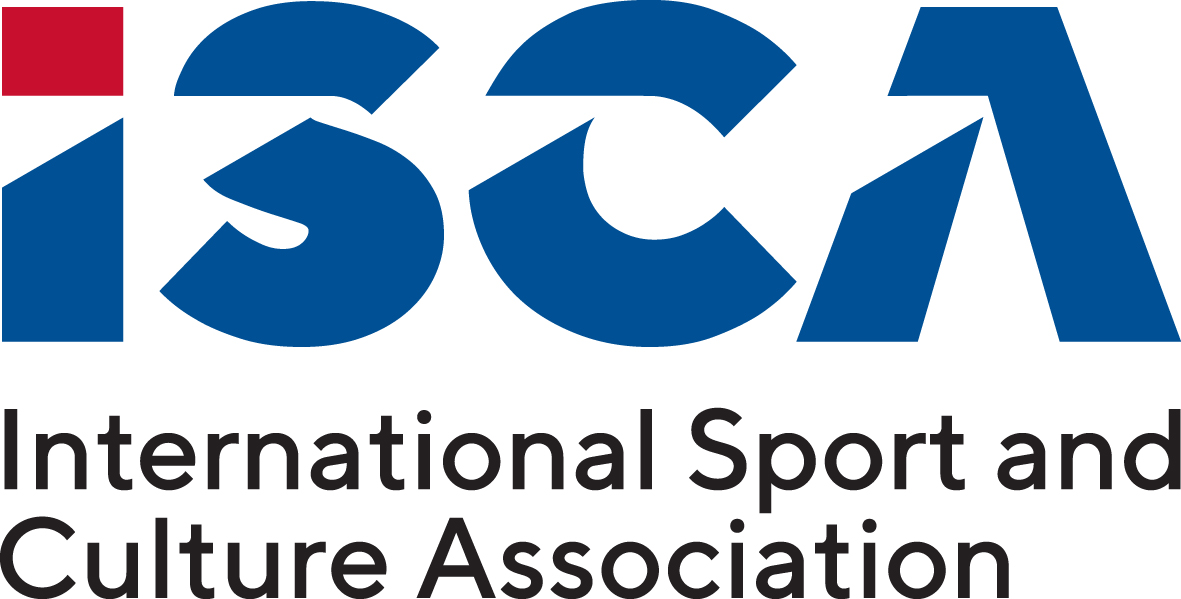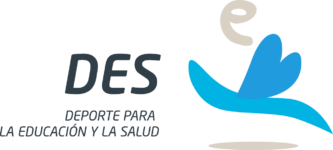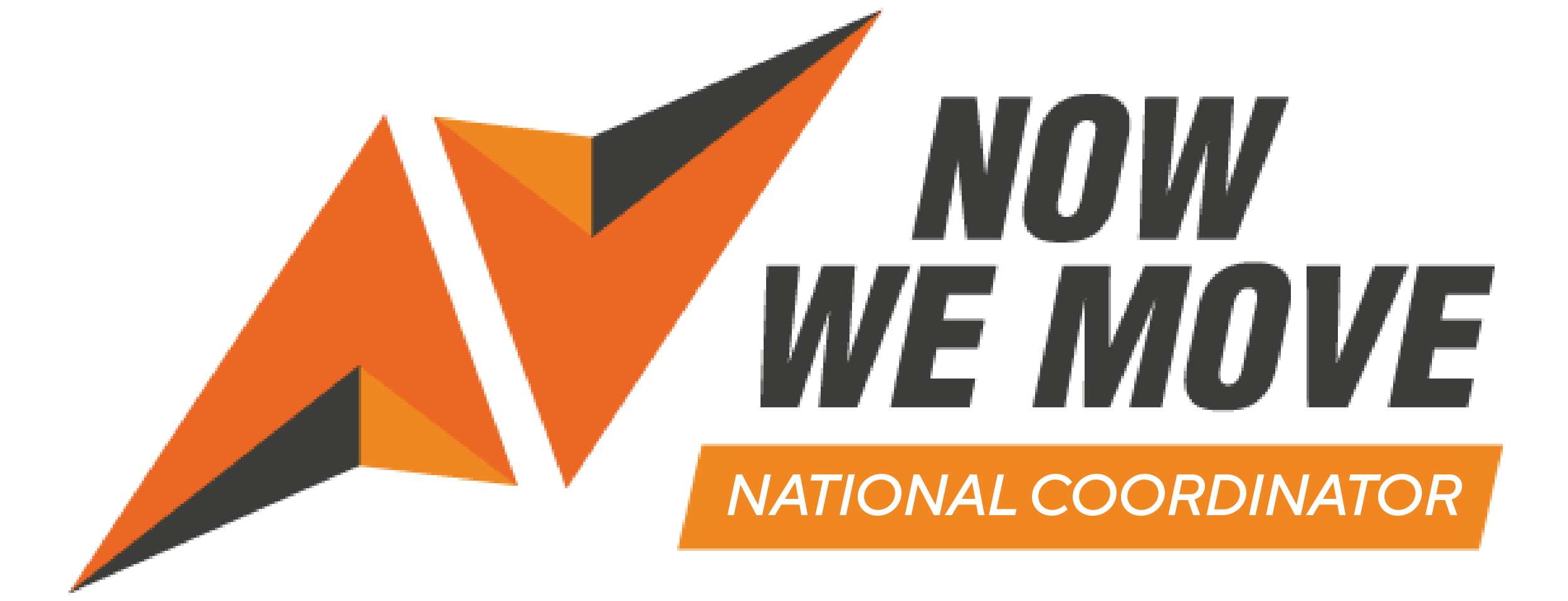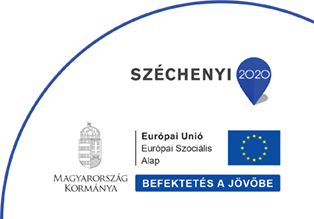PROJECTS
European School Sport Day® (ESSD) is an initiative that aims to promote physical activity and sport at the international level, encouraging as many children and young people, schools, and organisations as possible to participate. ESSD also aims to break down cultural barriers and promote social inclusion by focusing on different focus topics every year. Since its first edition back in 2015, ESSD has been held annually, with the number of participating countries and students increasing each year. In 2023, almost 2.6 million students from 41 countries participated in ESSD. More than 11 thousand schools organised local ESSD festivals last year. The Day is one of the biggest events of the European Week of Sport’s #BeActive campaign and has been organised on the last Friday of September every year since 2015. In 2024, we will be celebrating the tenth anniversary of ESSD on 27 September.
We believe that strengthening long-term healthy lifestyle attitude of youth relies on the combination of non-formal opportunities emphasising the ‘fun factor’ of physical activity and integrating movement into children’s everyday lives.
The Education through Movement theme of ESSD 2024 extends the primary objectives of ESSD by offering an alternative approach to promote physical activity in classrooms and between classes, which has proven to have several positive effects on learning and health. We believe that combining education with physical activity can motivate children to adopt a more active and healthier lifestyle, developing positive attitudes and behavioural patterns. ESSD provides an opportunity to leverage the power of sports to drive meaningful impact.
Education through Movement is a powerful approach recognising the intrinsic connection between physical activity and cognitive development. We are made to experience the physical world around us through movement. Building on this concept, the integration of movement into the learning process extends beyond the traditional confines of a classroom, fostering a dynamic and holistic educational experience.
Movement catalyses engagement, stimulating multiple senses and enhancing memory. When kids actively engage their bodies in the learning process through dance (-like movements) or physical exercises, they experience a deeper connection with the subject matter. Moreover, education through movement cultivates a beneficial environment for diverse learning styles. By integrating movement into lessons, teachers enable children to grasp complex ideas through physical demonstrations and hands-on experiences. This inclusive approach acknowledges and values how children and youth absorb and process information.
In 2024, a new toolkit will be introduced, providing schools with relevant methodological and practical information on how physical activity can be incorporated into daily classroom routines throughout the school year. The toolkit will include the priority focus topic of the year and recommended activities to promote it.
ESSD holistically implements the objectives included in the EU policies on education and sport, interlinking the policy areas defined in the Guidelines: sport, health, and education. It contributes to developing lifelong behaviour patterns in connection with physical activity. By establishing flagship events, ESSD aims to connect European youth through physical activity, forming a community of physically active pupils across Europe.
Come and join us! The registration will open soon at the https://www.essd.eu/register page.
Call: ERASMUS-SPORT-2023
Topic: ERASMUS-SPORT-2023-SNCESE – Not-for-profit European sport events
Type of Action: ERASMUS-LS
Reference 101134021 (ESDD2024)
Coordinator: Hungarian School Sport Federation
Partners: International Sport and Culture Association (ISCA, Denmark), European Physical Education Association (EUPEA, Luxemburg), BG Be Active Association (BGBA, Bulgaria), Deporte Para La Educacion Y La Salud (DES, Spain), Fundacja V4 Sport (V4 Sport, Poland)
Funder: European Commission
Timeline: 1 January 2024 – 31 December 2024
Website: https://www.essd.eu

Disclaimer
Funded by the European Union. Views and opinions expressed are however those of the author(s) only and do not necessarily reflect those of the European Union or the European Education and Culture Executive Agency (EACEA). Neither the European Union nor EACEA can be held responsible for them.
The Moving Schools Challenger (hereinafter: “MSC”) is a project born from experiences carried out in Spain with different healthy and physically active programs during 3 school years. This program, coordinated by Deporte para la Educacion y la Salud (DES), has proven to have a very beneficial impact on the activity level of students, parents, and teachers.
In 2022, the concept presented earlier became a project proposal, which was funded by the European Commission under the ERASMUS+ program as the Moving Schools Challenger project.
The aim of the MSC project is to create a pan-European programme for the whole school year with different cooperative monthly challenges (to achieve higher results for the school score together). Students get more committed to being active and behaving in a healthy way, and they learn and integrate healthy lifestyles and lifelong behaviours in a positive way based on their experience of going to school every day. The program will provide support to schools for implementation and will reward them monthly on successful completion of the program.
The Hungarian School Sport Federation has been a cooperation partner in the project since autumn 2023. The project will be piloted in the following 10 Hungarian schools in the 2023/2024 school year:
- Kaposvári Csokonai Vitéz Mihály Gyakorló Általános iskola, Gimnázium és Szakgimnázium (Kaposvár)
- Egri Kemény Ferenc Sportiskolai Általános Iskola (Eger)
- Mezőberényi Általános Iskola, Alapfokú Művészeti Iskola és Kollégium (Mezőberény)
- Csaholci Általános Iskola (Csaholc)
- Diósgyőri Nagy Lajos Király Általános Iskola (Miskolc)
- Celldömölki Városi Általános Iskola (Celldömölk)
- PTE II Gyakorló Deák Ferenc Általános Iskola (Pécs)
- Zalaegerszegi Zrínyi Miklós Gimnázium (Zalaegerszeg)
- Diana Fegyvertechnikai Technikum és Kollégium (Csongrád)
- Ramassetter Vince Testnevelési Általános Iskola (Sümeg)
Call: ERASMUS-SPORT-2022-SCP
Timeline: January 2023 – December 2025
Action type: Collaborative Partnerships
Reference: 101090063
Coordinator: Deporte Para La Educacion Y La Salud (DES)
Partners: The Youth Sport Uk Charitable Trust (YSTI, UK), European Physical Education Association Asbl (EUPEA, Luxembourg), International Sport and Culture Association (ISCA, Denmark), L Orma Ssd Arl (Italy), Association Bg Be Active Association (BGBA, Bulgaria), Fundacja V4 Sport (V4Sport, Poland)
Pilot partner: Hungarian School Sport Federation (Hungary)
Funder: European Commission
Website: https://www.movingschools.eu

Disclaimer
Funded by the European Union. Views and opinions expressed are however those of the author(s) only and do not necessarily reflect those of the European Union or the European Education and Culture Executive Agency (EACEA). Neither the European Union nor EACEA can be held responsible for them.

The European School Sport Day (ESSD) is a pan-European initiative whose main objective is to promote sport and health-enhancing physical activity at international level and to involve as many children, young people, schools and organisations as possible in sport programmes. The ESSD also aims to promote community building and social inclusion through a variety of annual themes.
The programme has been organised annually since 2015, with a steady increase in the number of participating countries and students. In 2024, more than 2.3. million students from 42 countries joined the event. The ESSD is one of the biggest events of the European Sports Week #BeActive campaign, celebrated on the last Friday of September every year since 2015. By organising local and flagship events, the ESSD aims to connect young people in Europe through physical activity and build a community of physically active students across Europe.
In addition to the ESSD’s primary objectives, in 2025 we want to raise awareness of the benefits of cooperation between schools and sports clubs, therefore we will share good practices and show how schools can benefit from these relationships. Our aim is to encourage teachers, head teachers and school administrators to reach out to sports clubs to find ways to work together.
Come and join us! The registration will open soon at the https://www.essd.eu/register page.
Call: ERASMUS-SPORT-2024
Topic: ERASMUS-SPORT-2024-SNCESE – Not-for-profit European sport events
Type of Action: ERASMUS-LS
Reference: 101184322 (ESSD2025)
Coordinator: Magyar Diáksport Szövetség (Hungary)
Partners: International Sport and Culture Association (ISCA, Denmark), European Physical Education Association (EUPEA, Luxemburg), BG Be Active Association (BGBA, Bulgaria), Deporte Para La Educacion Y La Salud (DES, Spain), Fundacja V4 Sport (V4 Sport, Poland)
Funder: European Commission
Timeline: 1 January 2025. – 31 December 2025.
Website: https://essd.eu

Disclaimer
Funded by the European Union. Views and opinions expressed are however those of the author(s) only and do not necessarily reflect those of the European Union or the European Education and Culture Executive Agency (EACEA). Neither the European Union nor EACEA can be held responsible for them.
HSSF is working on the long-term implementation and continuous development of numerous innovative programmes with the aim to encourage children to move regularly and to a healthier lifestyle, such as the Hungarian Active School Programme.
The implementation of the project will provide us the opportunity to familiarize the teachers from the schools participating in the Hungarian Active School Programme and the HSSF’s colleagues who are working in professional development and operational management of the programme with examples of the Irish Active School Flag programme.
We are confident that the professional visit will give further motivation to the participants to continue their activities in the national programme, will contribute to the shaping of their knowledge, skills and attitudes, will contribute to the learning of new international good practices and methodological solutions, and will also promote the development of the programme by integrating these experiences into the Active School Programme, thus having an impact on the physical activity of Hungarian school-age youth.
Besides, we aim to promote establishing long-term professional relationships between schools in Hungary and abroad (e.g. twinning, exchange programmes, creating the basis and opportunities for exchange of experience) and to motivate teachers returning from Ireland becoming key players in the further development and promotion of the national programme.
Call: Call for 2023 – EAC/A10/2022 Erasmus+ Program
Type: KA182-SPO – Moblity of staff in the field of sport
Reference: 2024-1-HU01-KA182-SPO-000219220
Beneficiary: Hungarian School Sport Federation (HSSF)
Hosting Partner: Mayo Education Centre – Active School Flag (Ireland)
Funder: European Commission
Timeline: 1 August 2024 – 31 July 2025

Disclaimer:
“Funded by the European Union. Views and opinions expressed are however those of the author(s) only and do not necessarily reflect those of the European Union or Tempus Public Foundation. Neither the European Union nor Tempus Public Foundation can be held responsible for them.”
Research and advocacy from sport and educational organizations as EU-HEPA report evidence for design and development of a manual and a toolkit to monitor the quality of Physical Education (PE) and HEPA in schools.EUPEA identified the diversity of PE and School Sport (SS) conditions within Europe and the importance of implementing a systematic monitoring for PE and HEPA as the European observatory.To build this monitoring solution based on the collaborative work between the professional and researchers’ stakeholders, 12 partners developed the present proposal. This partnership covers eight countries, including PE teachers associations and universities or research centres and 22 researchers.The EuPEO project aims to convert former monitoring and evaluation experiences of PE and HEPA into a comprehensive but applicable system by developing the EuPEO webpage, a manual for external monitoring (MEA), and a toolkit to prepare and provide internal self-monitoring (TIM) of quality PE and SS.During a three years study, the partners will be involved on the construction and validation of these instruments. The MEA will be developed as an open access methodological e-book to be integrated in the platform supported by the EuPEO webpage to guide the data collection process to feed the observatory database. Moreover, the MEA will be important to the advocacy and to capacitating Europe to monitoring the HEPA recommendations. TIM will capacitate schools to monitor HEPA recommendations directly. Eight national multiplier sport events will disseminate this platform in each partner country, and one European multiplier sport event (EUPEA 2020 Forum) to discuss the platform with other potential international institutions to become part of the project.By this, each country will be able to decentralize the control of the HEPA conditions. Furthermore, each country will be able to identify good examples, disseminate them and motivate other schools implement similar conditions.
Project website:

Focusing on physical fitness, the FitBack project will address the need identified by the EC to overcome difficulties in physical activity monitoring. In accordance with European HEPA policies’ recommendations, it will also extend and deepen the cooperation at transnational EU level and share information and exchange best practices of physical fitness monitoring systems developed across Europe. The purpose of the project is to prepare a multilingual web platform FitBack that will provide feedback on the different components of physical fitness of an individual child/adolescent, and contain key information for the establishment of a national, regional or local system for monitoring physical fitness. By creating such a platform, we aim to bridge gaps between European political recommendations and the current state of affairs, and improve cross-talk between sectors (education, health, sport). Furthermore, the European network for the support of development of systems for monitoring physical fitness of children and adolescents at local, regional, national and European levels that will be established through this project will allow examination of population trends, the effects of national policies and interventions, and enable the prediction of future trends. Therefore, the project has two vital parts addressed to different target groups:1. The FitBack online application for adolescents, parents, teachers, physicians and coaches will provide user-friendly graphical report containing information on the physical fitness of an individual based on the appropriate reference values.2. Info point on the FitBack web platform for policy makers on local, regional and national level will contain essential information about establishing systems for the monitoring of physical fitness of children and adolescents. To gather feedback on the usefulness of both essential parts of project, we will conduct multiplier sport events with target groups in partners’ countries.

This project proposal addresses both horizontal and field-specific priorities in the area of Strategic Partnerships for School Education.
The focus lies on the strengthening of the teaching profession, including teachers and teacher educators but also other school staff as a sectoral priority in School Education. By the development of pedagogical resources fostering physical education, school sport as well as physical activity and healthy lifestyle in school settings in the frame of school development and school quality management, teachers’ and future teachers’ and other school staff’s professional development will be enhanced. The developed modular implementation toolkit, available in an open educational webbased resource, will support teachers and other school staff in implementing physically active and healthy lifestyle in daily school life. Teacher educators and school staff trainers will be able to use the developed resources in initial teacher education, in induction and/or continuous professional development of teachers, as well as in continuous professional development of any other school staff. Furthermore, as a horizontal priority, the focus lies on supporting educators in general in enhancing physical activity and healthy lifstyle in school settings and beyond. Due to the particpation of the two international umbrella associations ISCA and EUPEA, both active in two different fields (ISCA: promotion of physical activity and grassroot in general; EUPEA: promotion of physical education and school sport in school settings), and due to the involvement of an academic partner (University of Luxembourg), a school sport federation (HSSF) and an association promoting physical activity in Spain (DES), the project will reach out for educators from all over Europe in different areas in a cross-sectorial approach. Thus, actors from the educational sector and from the grassroots sports sector will be brought together. Finally, through this transnational partnership including five partners from five European countries, dont two acting as international umbrella associations, and 12 associated national partners, lots of individuals reached by these partners will be supported in acquiring and developing basic skills and key competences relevant for their professional life. The cooperation and exchange between the participating institutions and their members will be reinforced and strengthened significantly. The cooperation with European umbrella associations of physical activity and grassroots sports (ISCA) and of physical education teacher associations (EUPEA) will strengthen the cooperation between the involved institutions, respectively organizations and professionals, thus underlining the crosssectorial approach of the project.

GEM project focuses on grassroots sport, by improving the knowledge and know-how of sport staff and developing international cooperation through the learning mobility in the field of sport. Overall objective of the project is to use mobilities and experience exchanges to develop individual competencies and organisational networks that will drive sport participation and mutual relations forward between partners from 5 Western Balkan countries and 5 other European countries.
The project focuses on grassroots sport, including school sport and PE, since these areas have tremendous effect on the regularity and quality of current and future participation in grassroots sports and PA of the students involved. Aiming primarily at the school sector, 3 dimensions defined for discussions, sharing, exchanging ideas:
- association between sport sector and educational sector – state of school sport,
- basis of grassroots sport – PE, school sport and PA in schools;
- peer volunteering in school sport and school PA.
Dimensions will be processed through online surveys, seminars, study visits (with “real-time” demonstrations of the chosen good practice), short analyses etc., and partners will discuss those outcomes, recommendations or good practices, which are the most relevant for them. A collection of good practices, and well-functioning strategies will be developed.
Partners involved: International Sport and Culture Association, ISCA (Denmark), European Physical Education Association, EUPEA (Luxemburg), Deporte para la Educación y la Salud, DES (Spain), Youth Sport Trust International, YSTI (UK), Federata Shqiptare e Sportit Shkollor, FSHSSH (Albania), Zdrav Život – Kinezis (Bosnia and Herzegovina), Koha ne Duart Tona, KNDT (Kosovo), Federation of Sports Pedagogues of Republic of Macedonia (North-Macedonia), Together Advancing Common Trust (North-Macedonia), Serbian School Sport Federation (Serbia).
Programme: EAC/S07/2020 – Preparatory Action – Exchanges and mobility in sport
Project Coordinator: Hungarian School Sport Federation
Reference: EAC-2020-0610
Funder: European Commission
Timeline: 1 January 2021 – 31 December 2022
Website: https://gem.move-transfer.com/
Facebook: https://www.facebook.com/Grassroots-Exchange-and-Mobilty-in-Sport-106259165421978
Disclaimer
„This project has been funded with support from the European Commission. This site reflects the views only of the authors, and the Commission cannot be held responsible for any use which may be made of the information contained therein.”
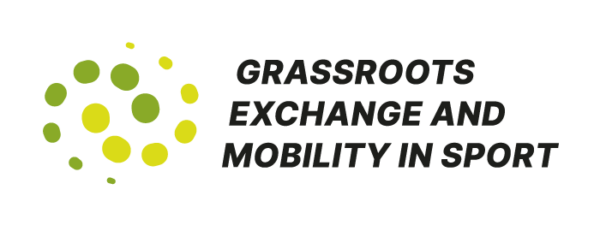

The European School Sport Day® (ESSD) is a pan-European initiative with the main objectives to promote sport and health enhancing physical activity at international level and involve as many children and young people, schools and organizations in physical activity programs as possible. ESSD also aims to break down cultural barriers and contribute to social inclusion. ESSD has been organized annually since 2015, with continuously increasing number of participating countries and students, reaching over 3 million children in 9000 schools in 44 countries over 4 continents in 2019. By extending its main objectives, ESSD 2021 especially will aim at exploring the topic MOVEment Spaces at school settings. By this, ESSD wants to reflect on and will place emphasis on three focus areas: 1) to change the environment: transform a school space into a MOVEment space and find answers for challenges in schools that lack appropriate infrastructure, 2) to use existing equipment in a different, new way: think out of the box – be creative, think green and sustainable and 3) to get active in a different way: try something new, with someone new, in a new setting, to exchange ideas, less known games and sports. The Toolkit will provide schools and pupils relevant methodological and practical information on how they can organise their own physical activity programs and how to use existing school environment and facilities in a different, new way. Thus, ESSD is fostering volunteering in sport and more particularly in school sport. The project implements the objectives included in the EU policies on education and sport in a holistic way, interlinking the policy areas defined in the Guidelines: sport, health and education. Besides, through the establishment of flagship events, ESSD aims to connect European youth through school sport.
Project website:

The European Physical Activity Label for Schools (EU-PALS) project was aimed at establishing a European physical activity label – the Moving Schools Award – that has been developed to promote the importance of high-quality provision of inclusive physical activity, physical education and sport for all young people and to recognize excellence. It has been established as a direct response to the EU’s objective of motivating all member states to emphasize the importance of quality physical education and provide the opportunity for all students to be active during and beyond the school day.This pan-European Award, the Moving Schools Award, provides a unified tool for all the EU countries and establish a network of national coordinators and schools who are dedicated in the field of physical activity promotion and have the capability to intervene on school and national level. This European network under one label is inspiring schools and children around the continent to be more active and move in the same direction towards eradicating inequalities in access to adequate physical activity. This is about taking schools on a journey and linking them and helping them to collaborate.The project conceptualized the base of existing evaluation systems applied in some of the European countries and aimed to explore the diversity of such systems on a scientific basis finding a common ground without being overly general. The scientific methods of the analysis and meta-analysis as basis of development were innovative in the dimension of EU Sport aiming at developing a holistic approach to help schools tackle general physical inactivity and provide up to date knowledge and aspects on what they can do for improvement. The most important innovative aspect of the project was though that by making the different settings of the European countries comparable, the development created a common evaluation system, the “lingua franca” of physical activity in the continent.The Moving Schools Award is an online self-assessment tool that has been developed to help schools identify areas for development in three different dimensions and involves indicators from three neighboring fields:
- physical education in schools (seen as an educational course and part of the curriculum), from the quality P.E. perspective;
- extracurricular physical activity (all physical activity settings in schools; active learning, active recesses, active transportation, active learning, learning through/with/in movement, etc.);
- school sport (competitive and non-competitive intra- and/or extramural sport events).
The Award aims to unite schools across all 28 member states and beyond in one movement to promote and recognize the importance of providing high quality physical activity, physical education and school sport for all their students. The award encourages schools to perform self-assessment, look for ways to comply, seek assistance, and therefore internalize the value system of the sport-minded schools.Schools that are dedicated to tackle physical inactivity will be motivated to have their efforts recognized during the evaluation in the award system, which will hopefully result in improving and developing quality and quantity of school sport, physical education and extracurricular physical activity programs.The objective of the project is reached through the increased participation of pupils in all three dimensions from all the participating schools in Europe.
Project website:
In order to achieve the innovative objective of the project, the partners perform a common development activity. The partner organizations identify and summarize the already existing knowledge, good practice and know-how related to the organization of sport events through workshops. Using this experiences, they elaborate a 3-year action plan including the conceptual framework needed during the implementation of such events. The strategic principles are developed in conformity with innovative aspects, taking into account the priority principles.
In order to achieve the objectives indicated in the 3-year action plan and to organize the ESSDs in an effective way the partners will create a toolbox, the elements necessary for the implementation of the ESSDs (professional content and operational requirements) The project defines two roles: the partner organizations perform coordination and supporting tasks as well, as several external institutions and participants are expected to adhere to the event series. These participants contribute only to the implementation of the Program.
The participants use the elements of the toolbox to organize their event according to their possibilities and conditions still following the objectives of the 3-year action plan and with the support of the project partners. The partner institutions deliver a report according to a pre-defined template. The experience summarised in the reports is then discussed and included in the 3-year action plan and the toolbox; consequently, these assets ensure the organic development and the sustainability of the project.
The partners finalize the text of the 3-year action plan and the content of the toolbox with consensus, bearing in mind the principles of sustainability and dissemination of knowledge.
During the preparation we pronouncedly searched partners who accept the same guiding principles and think it’s necessary to move forward in this area.
Project website:
The European School Sport Day (ESSD) is inspired by the Hungarian School Sport Day, an event which has been organized by the Hungarian School Sport Federation (HSSF) for the last 10 years. It is a day dedicated to promote physical activity, to try out new ways of physical activities and sports, and of course to empower the „belonging to the school” experience for every participant. During the first ESSD in 2015, around 1.000 events were organized in Hungary, Bulgaria and Poland with more than 300.000 participants. This scale-up and extension of the Program has been implemented with the financial support of the European Union in the frame of the Erasmus + Program (hereinafter: “ESSD 1”, agreement number: 2015-1147/001-001). ESSD 1 not only involved other countries to join this unique initiative as a pilot but also developed the basic documents that ensure the sustainability and enlargement of ESSD: a toolkit and an action plan were prepared and published by the members of the consortium that was now ready to use for all organizations and schools interested in joining ESSD. The Enlargement of ESSD provided a magnificent opportunity to expand the international presence and popularity of the ESSD. With the link of multiple new partner countries we were also able to extend the added value and goals of ESSD on many levels. The project has been implemented successfully in line with the set objectives, planned activities and budget: Recruiting was one of the key elements of the project. As we had very limited time before school year end we had to make all efforts to be able to start selecting organizations that would like to be ESSD organisers as we called them later: national coordinators. Although this task was planned to end until the end of June, HSSF decided to allow new countries to join later on as well. This was a very well made decision as finally we could involve 20 countries, some of them joining just two weeks prior the event 0(e.g. Spain, Cyprus, Latvia, Portugal). This was a massive work for the management to prepare and support the event Organizing of these last minute joined countries but HSSF was pleased to welcome them on board. HSSF aimed to ensure an international website of the project where online registration and reporting is available and the joined countries and their schools can find the Toolkit, as a ready to use document for Organizing ESSD. We focused on the idea that each country shall be able to reach the website in one of its official languages (for instance we had English but we did not have Maltese, or Irish). After the events and the reporting period we collected all feedbacks in terms of content, design, functions and during the evaluation phase the project team prepared the suggested second version of the website that already took all feedbacks into consideration. A two days training was organized on 30 June-01 July in Budapest. We had a preparatory meeting with our former consortium members of BG BE Active and Youth Sport Trust on 29 June after their arrival in Budapest. We had altogether 18 participants, representing our partner organizations such as (ISCA, EUPEA, Youth Sport Trust and BGBE Active) and candidates for national coordinators of ESSD who were attending the meeting as delegated either by ISCA or by EUPEA as a result of the recruitment until that time. After the training all coordinators started the promotion and preparation of the event at national level and in the meantime, som3e further countries joined as well. European School Sport Day has been organized altogether in 20 European countries with the participation of 1,5 million children exceeding our expectations by all means. The official date was 30 September, but two countries had their events on a different day (France on 14 September and Latvia on 28 September). We are very proud of these results and would like to further widen the number of countries involved and the scale of the events organized in the future.
Project website:
EACEA project card and some output:
The European School Sport Day® (ESSD) was inspired by the Hungarian School Sport Day, an event which has been organized by the Hungarian School Sport Federation (HSSF) for the last 13 years. It is a day dedicated to promoting physical activity and to empower the “belonging to the school” experience for every participant. During the first ESSD in 2015, around 1,000 events were organized in Hungary, Bulgaria, and Poland together with more than 300,000 participants, with funding through Erasmus+ (project title: ’European School Sport Day’, agreement number: 2015-1147/001-001). ESSD 2015 not only involved other countries to join this unique initiative as a pilot but also developed the basic documents that ensure the sustainability and enlargement of ESSD: the first toolkit and an action plan have been prepared and published by the members of the consortium that were ready to be used for all organizations and schools interested in joining ESSD the year after. In 2016, the ’Enlargement of ESSD’ project became a success story: it expanded to a total of 20 countries, and reached 1.5 million students, again with the funding of Erasmus+ (agreement number: 2016-1007/001-001). ESSD 2016 provided a magnificent opportunity to expand the international presence and popularity of the ESSD. With the involvement of multiple new partner countries, we were also able to extend the added value and goals of ESSD on many levels. In 2017, we linked ESSD officially to the Euro4pean Week of Sport and the #BeActive campaign. The event expanded to a total of 26 countries, reached 2 million students and became the biggest sport event of EWoS. In 2018, the ‘ESSD – Flagship event’ project targeted to involve as many European countries as possible. We have implemented ESSD as a flagship event of EWoS and succeeded to reach 29 European countries and nearly 2.5 million participants. In addition, ESSD piloted beyond Europe in four countries of two other continents in 2018. This scale-up and extension of the Program in 2018 were only possible with the financial support of the European Union in the frame of the Erasmus+ Program. We are very pleased with these results and would like to further increase the scale of events organized in Europe and beyond in the future. The project has been implemented successfully in line with the set objectives, planned activities, and budget. The main accomplishments were:
– Production of new ESSD Communication handbook and Style guide.
– Authoring of new ESSD Sponsorship handbook.
– Defining Key Performance Indicators (KPI-s) for national ESSD coordinating organizations with three communication levels to choose from.
– Organizing three international project meetings (kick-off meeting, London, 11 January; ESSD Seminar, Budapest, 11-13 April; closing and evaluation meeting, Budapest, 16-17 October 2018).
– Revamping the essd.eu international website, developing the IT database of the school data so that every coordinator can access and process their own national data. Providing continuous help-desk support during the registration and reporting period.
– Providing financial support to 18 national ESSD coordinating organizations who were delegated either by ISCA or by EUPEA as a result of recruitment, to enhance their communication campaign. In return of the funding, the national organizations were obliged to undertake one of the three communication levels set in the KPIs.
– 17 EU member states have organized ESSD flagship events (one or more per country) that were reported in national media. In several countries, the main events concentrated on a central thematic topic, i.e. grassroots sport.
Project website:
The European School Sport Day® (ESSD) was inspired by the Hungarian School Sport Day, an event which has been organized by the Hungarian School Sport Federation (HSSF) for the last 14 years. It is a day dedicated to promoting physical activity and to empower the “belonging to the school” experience for every participant. During the first ESSD in 2015, around 1,000 events were organized in Hungary, Bulgaria, and Poland together with more than 300,000 participants, with funding through Erasmus+ (project title: ’European School Sport Day’, agreement no: 2015-1147/001-001). ESSD 2015 not only involved other countries to join this unique initiative as a pilot but also developed the basic documents that ensure the sustainability and enlargement of ESSD: the first toolkit and an action plan. In 2016, the ’Enlargement of ESSD’ project became a success story: it expanded to a total of 20 countries, and reached 1.5 million students, again with the funding of Erasmus+ (agreement no: 2016-1007/001-001). ESSD 2016 provided a magnificent opportunity to expand the international presence and popularity of the ESSD. With the involvement of multiple new partner countries, we were also able to extend the added value and goals of ESSD on many levels. In 2017, we linked ESSD officially to the European Week of Sport and the #BeActive campaign. The event expanded to a total of 26 countries, reached 2 million students and became the biggest sport event of EWoS. In 2018, the ‘ESSD – Flagship event’ project (agreement no: 2017 – 2335/001-001) targeted to involve as many European countries as possible. We have implemented ESSD as a flagship event of EWoS and succeeded to reach 29 European countries and nearly 2.5 million participants. In addition, ESSD was piloted beyond Europe in four countries of two other continents in 2018. This scale-up and extension of the Program in 2018 were only possible with the financial support of the European Union in the frame of the Erasmus+ Program. We were very pleased with the results and kept on the work to further increase the scale of events organized in Europe and beyond in 2019. This year the project reached 3 million participants in over 9000 schools, in 44 countries, in 4 continents. The project has been implemented successfully in line with the set objectives, planned activities, and budget. The main accomplishments were:
– Production of Healthy Nutrition Toolkit for national coordinators and participating schools- Production of updated ESSD Communication handbook.
– Authoring a new PR handout for coordinators – Organizing three international project meetings (kick-off meeting, Vienna, 10-11 January; ESSD Seminar, Budapest, 27-29 March; closing and evaluation meeting, Budapest, 15 October 2019). – Participation on EWoS Related events – key players’ seminar, opening and closing- Revamping the essd.eu international website. Providing continuous help-desk support during the registration and reporting period.
– Providing financial support to 26 national ESSD coordinating organizations who were delegated either by ISCA or by EUPEA as a result of recruitment, to enhance their communication campaign. In return of the funding, the national organizations were obliged to undertake one of the three communication levels set in the KPI-s;
– 27 EU member states have organized ESSD flagship events (one or more per country) that were reported in national media. In several countries, the main events concentrated on the central thematic topic, i.e. healthy lifestlye – promoting fruit and vegetable consumption and hydratation.
Program countries
- EU members 27
- non-EU members 4
Partner countries
- Western-Balkans 2
- Eastern Partnership 4
- Other partner countries
- Latin America2
- ACP region 1
- Other industrialised countries 4
Project website:
The European School Sport Day® (ESSD) is a pan-European initiative with the main objectives to promote sport and health enhancing physical activity at international level and involve as many children and young people, schools and organizations in physical activity programs as possible. ESSD also aims to break down cultural barriers and contribute to social inclusion. ESSD has been first organized in 2015 with the support of Erasmus Plus Program. In 2016, organized with the continued support of the Erasmus Plus Program, the inclusive sport event had 1.5 million participants in 20 countries. In 2017, Hungarian School Sport Federation has engaged 2 million participants in 26 European countries and ESSD became the biggest event of European Week of Sport. In 2018, ESSD was organized as a Flagship Event of European Week of Sport in 29 European countries. By extending its main objectives, ESSD 2020 especially will be aimed at exploring the relation between sport and media. By this, ESSD wants to reflect on and will place emphasis on the the fact that (social) media has an ever growing importance in the life of our children. This trend implicates obvious risks concerning the physical activity levels of the youngsters, but, with appropriate measures and methodology, the use of social media can contribute to the propmotion of healthy lifestyle and the mental health of the individual. The Toolkit developed earlier by partnering organizations provides schools and pupils relevant methodological and practical information on how they can organise their own physical activity programs. Thus, ESSD is fostering volunteering in sport and more particularly in school sport. The project implements the objectives included in the EU policies on education and sport in a holistic way, interlinking the policy areas defined in the Guidelines: sport, health and education. Besides, through the establishment of flagship events, ESSD aims to connect European youth through school sport.
Project website:
EACEA project card:
The Activity Square Europe Project established measures to motivate and empower sport organizations at different levels to become active partners for schools, in order to positively impact the levels of Health Enhancing Physical Activity of school aged children in Europe. Co-funded by the Erasmus+ Program of the European Union the project facilitated professional exchange between existing initiatives in the EU Member States, in order to strengthen the connection between national initiatives at the European level with the intention of strengthening current or future initiatives at the national level. The consortium was comprised of sector leaders in the development of School-Sport cooperation and included 13 organizations from 10 EU Member States; Fit Sport Austria(AT), ASKÖ – Committee for Sport and Physical Culture(AT),ASVÖ General Sports Federation Austria(AT),Sportunion(AT),Finnish Sports Confederation(FI),Swedish Sports Confederation(SE),Hungarian School Sport Federation(HU),Slagelse Municipality(DK),Slovenian Sport Office(SI) Youth Sport Trust(UK),Regional Sports Confederation for the Saarland(DE),HANZE University of Applied Sciences Groningen(NL),Foundation of Flemish School Sport(BE). The project was very successful in connecting and facilitating exchange between major stakeholders in the European eco-system of School and Sport sector cooperation. This exchange wasn’t only limited to this group with 3 annual forums providing a platform to bring the concepts discussed and tools developed to the national context. Furthermore, exchange was stimulated by On-Site visits which allowed the partners to see for themselves how initiatives and Programs are implemented in other member states whilst also learning about the wider contextual issues which influence activities in other countries. This allowed not only for a better understanding of the situation in other member states but also for the partners to reflect on their own Programs and to apply examples of good practice. In addition, an online platform was developed to sustain the momentum created by the network and expand the breadth of perspectives on the topics raised through the project with the aim of building a long lasting community. Part of the strategy to extend the network included the development of a European Sport and School Sector Cooperation Award and an Ideas Competition, which simultaneously promoted innovative approaches and acted as a contact point for stakeholders into the project and network. These measures were underpinned by the development of applicable tools, notably the creation of a Benchmarking Tool which provides quality markers for Program developers in the field of School-Sport collaboration. This is seen as a key aspect of the sustainability measures with the tool being updated in the future to reflect the changing nature of the structural, economic and societal contexts and also the contributions of a widened network. Furthermore the project also operated at a practical level, implementing and testing a number of ‘Pilot Projects’ which took ideas developed or established in one partner country and tested them in the context of other partner countries. This was a very successful aspect of the project with one of the initiatives – ‘Mini-Coaches’ a peer to peer education Program – now being rolled out in Austria. This process was successful in highlighting and reinforcing the opportunity for partners from differing member states to collaborate across borders. In summary, the project has established a highly competent and committed network, connected both by a shared vision on how to influence a key issue facing the European community in childhood inactivity, and also infrastructural tools and processes developed through the Work Program. The partnership plan not only to continue their collaboration but to expand their activities in the future, in order to ensure that the legacy of the project is fulfilled.
The Active School Communities (ASC) project assisted the strengthening of the links between community sport organizations and school and established an innovative consortium that has the potential to influence how sport and physical activity initiatives are delivered in school and community-wide settings across Europe, so there are more young people getting active and enjoying the benefits of physical activity. Over the two-year ASC project more than 20 different experts from research institutions, the education sector and non-profit organizations in 10 European countries have worked to equip community sport organizations with an adaptable toolkit which they can use to collaborate more effectively with schools on physical activity initiatives. Research and evaluation of best practices in Europe established a set of criteria for Active School Communities, also taking into account examples of less successful initiatives that the community sport organizations could learn from. The learning points from collected examples and practical experience from a cross-sector group of experts underpinned the development of a toolkit and further resources, such as the ASC Policy recommendations. An Active Schools Communities (ASC) toolkit was designed to structure more productive conversations between schools and sports clubs that ultimately lead to a larger and better trained physical activity workforce, more active young people inside and outside school and a healthier, happier, and more cohesive community. The ASC toolkit was piloted and tested across the seven implementing countries. About 40 different local sport organizations became engaged in the ASC project activities and reached out for partnerships with almost 50 schools (more than 70% were primary schools). More than 4,000 children participated in over 200 single ASC course units, ranged each from 45 up to 180 minutes per week. The collaboration between the project partners and implementing partners from the assisting community sport organizations and their advocacy efforts facilitated more effective integration of the local community organizations, the primary schools and policy-makers to encourage more children across Europe to be engaged in health-enhancing physical activity (HEPA). One of the key messages passed through the ASC project activities was that providing physical education both inside (as an integral part of the curriculum or as an extracurricular school sport) or outside of schools is critical in helping young people to learn and develop life skills. The project objectives outlined below highlight the elements of the project that contributed to addressing the EU’s ambitions to enhance collaboration between education and grassroots sport sector.
The main purpose of our project has been to propose a framework that supported the implementation of the health enhancing physical activity in schools on European level. The first steps intended to analyze the regulatory practice of the participating countries, through the examination and comparing of the following questions:
– Is the philosophy of the health-enhancing physical activity involved in the core curriculum contents (core curricula, frame curricula) in the participating states / EU member states; – If yes, in what form? – Is this approach tangible in all learning contexts (formal, informal, non-formal)?
– How quality-focused is the evaluation process of the learning outcomes in case of the P.E. class?
The purpose of our project has been the analyzation of core curricula and the national qualification frameworks of the relevant states in order to propose a European-level framework that supports the concept of quality physical education and aims the development of the principles and intervention areas of the health oriented physical education and health enhancing physical activity. The project results have been formed as recommendations, titled as European framework on quality physical education (hereinafter: EFQPE) and Health-Conscious,Future-Oriented Life Management Key Competence (HCFOLM).
The project proposal strengthened the evidence base for policy-making and also promoted the dialogue with relevant European stakeholders, therefore contributed to the goals set in the Council Recommendation of 2013 on promoting health-enhancing physical activity across sectors. The proposal targeted promoting awareness of the importance of health-enhancing physical activity, through increased participation, and equal access to sport for all. Our project promoted the increase of capacity and professionalism when working at EU/international level, the improving of management competences, internationalization strategies, and cooperation with partners from other countries.
The project proposal aimed at supporting the scientific exchange and research activity between the Visegrad countries (V4) in the field of health-enhancing physical activity (HEPA) based on the existing experiences of the coordinator and the 3 partner institutions through workshops, a forum and the progressive input from individual experts. The project proposal aimed at giving basic analysis of the public education systems and thus to contribute to the establishment of a monitoring framework.
Throughout the one-year period of the project a common ground on Quality Physical Education was elaborated. The workshops focused on the following key areas in the four countries:
– National Qualification Framework (NQF);
– Public Education System (PES);
– Lifelong Learning Key Competences (LLL);
– Core Curricula particularly in the field of Physical Education (CC).
The project was managed and coordinated by HSSF. The 3 partner institutions contributed to the development of the professional content, participating actively in the 3 planned workshops, explain the relevant documents in English, took part in the organization of the European Physical Education Association (EUPEA) forum meeting in October, 2015.
Tools of the project implementation were:
– Mutual thinking and planning;
– Sharing of research results;
– Sharing the relevant documents with the participating organizations and other key actors of sport science and education systems;
– Sharing of experiences in the frame of 3 workshops and in the EUPEA forum meeting;
– Creation of a common vision;
– Drafting National Recommendations for all the participating countries
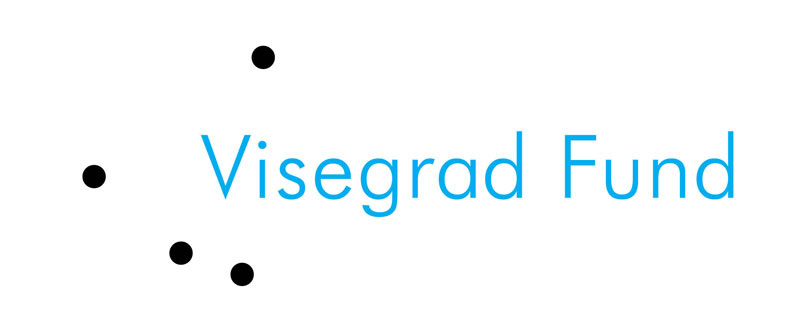
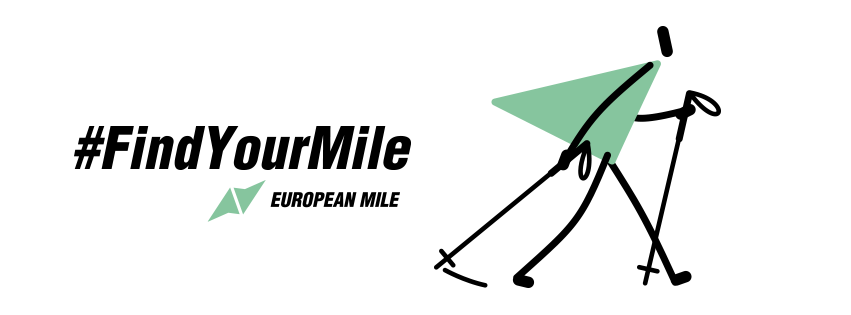
The European Mile is a free event celebrating the joy of moving again at your own pace – by running, walking, or rolling a mile.
Running and walking are among the most popular types of recreational physical activity in Europe. But in 2020, many of us stopped moving or moved less because of local restrictions. The European Mile is a fun and easy way to get moving again and reconnect with people around Europe by sharing your miles and donating them towards a common cause.
For the European Mile, the iconic distance 1.6 kilometres is the key metric. But there are many different mile distances, so we encourage you to #FindYourMile!
Anyone can register an event or even join in with a self-organised activity. Simply share your run, walk, or roll with the hashtag #FindYourMile to take part. Every Move Counts!
Create your own event or donate your miles during 2021 to take part and move together with people around Europe for the main celebration on 5 June 2021.
Here in Hungary, we are inviting schools to complete the 1-mile distance with their children from the start of Move Week (31 May) until the end of the school year (15 June) in some form: running, cycling, rollerblading, jogging, sprinting or whatever, and post about it using the hashtag #FindYourMile.
The European Mile is an initiative supported by the Erasmus+ Sport programme of the European Commission and is coordinated by ISCA as part of the NowWeMOVE campaign.


The European School Sport Day® (ESSD) is a pan-European initiative with the main objectives to promote sport and health enhancing physical activity at international level and involve as many children and young people, schools and organizations in physical activity programs as possible. ESSD also aims to break down cultural barriers and contribute to social inclusion. ESSD has been organized annually since 2015, with continuously increasing number of participating countries and students, reaching over 3 million children in more than 9000 schools in 41 countries over 4 continents in 2021. By extending its main objectives, ESSD 2022 will focus on „Going green in sport”, and it aims to increase the participation of schools across Europe in the sports day on the last Friday in September, thus communicating the importance of physical activity to children and raising awareness of the importance of environmental protection and sustainability. The project implements the objectives included in the EU policies on education and sport in a holistic way, interlinking the policy areas defined in the Guidelines: sport, health and education. Besides, through the establishment of flagship events, ESSD aims to connect European youth through school sport.
Project website:


With the support of the European Union’s ERASMUS+ programme, the Sport #WithoutWaste project, led by BG Be Active Association (BGBA), is a multidisciplinary collaborative partnership aiming to start a Sport #WithoutWaste movement focusing on six countries: Bulgaria, Romania, Hungary, Serbia, Albania, and Türkiye.
BGBA aspires to transfer, adapt and scale the tested national practices on having cities and events #WithoutWaste from BGBA and Bulgaria to the partnering countries with a focus on the grassroots-sports sector. With partners and their local networks, we aim to create and transfer the without-waste ideas to other grassroots sports organisers and educational institutions such as schools and universities.
The overarching objective is to start the #WithoutWaste for leisure and sport movement by employing the placemaking methodology and tactical urbanism approach, transferring knowledge, and building the capacity of partnering organisations to coordinate waste-free grassroots sporting events. In developing the Sport #WithoutWaste national actions, the project consortium will also work to develop and introduce policies on litter prevention and sustainable practices for grassroots sports campaigns and events.
The consortium is joined by two expert partners, which will ensure the successful delivery and sustainability of the project by sharing their expertise – ISCA – International Sports and Culture Association with years of experience promoting physical activity on a European level, and Nabolagshager – a pioneer in implementing and developing projects promoting green practices.
Call: ERASMUS-SPORT-2021-SCP
Reference 101050588 (SWW)
Coordinator: BG Be Active Association (Bulgaria)
Partners: HSSF (Hungary), ISCA (Denmark), Nabolagshager (Norway), AJSPT Suceava (Romania), Sport for All Serbia (Serbia), Envercevko (Türkiye), FSHSSH (Albania)
Funder: European Commission
Timeline: June 1st 2022 – 31st May 2024
Website: https://sportwithoutwaste.org/
Disclaimer
“Sport #WithoutWaste is funded by the European Union. Views and opinions expressed are, however, those of the author(s) only and do not necessarily reflect those of the European Union or EACEA. Neither the European Union nor the granting authority can be held responsible for them.”


European School Sport Day® (hereinafter: “ESSD”) is a pan-European initiative with the main objectives to promote sport and health enhancing physical activity (PA) at international level and involve as many children and young people, schools, and organizations in PA programs as possible. By identifying different focus topics each year, ESSD aims to break down cultural barriers and contribute to social inclusion. The program has been organized annually since 2015, continuously increasing number of participating countries and students, reaching almost 2,5 million students in 41 countries in 2022. By extending its main objectives, ESSD2023 will offer an alternative method that shows the joys of movement and thereby motivates children to adopt a more sporty, active lifestyle, to develop such attitudes and behavioural patterns. We use ESSD to leverage the power of sports to drive meaningful impact.
In 2023, the priority focus topic and the recommended activities that can promote it will be introduced in a toolkit, which provides schools and pupils relevant methodological and practical information on how they can organize their own PA events and how to find new, joyful, fun ways to be #BeActive. The project implements the objectives included in the EU policies on education and sport in a holistic way, interlinking the policy areas defined in the Guidelines: sport, health, and education. It contributes to the development of lifelong behaviour patterns in connection with PA. Through the establishment of flagship events, ESSD aims to connect European youth through PA and by addressing a huge audience, forming a community of physically active pupils across Europe.
Call: ERASMUS-SPORT-2022-SNCESE
Reference 101090102 (ESDD2023)
Coordinator: Hungarian School Sport Federation
Partners: International Sport and Culture Association (ISCA, Denmark), European Physical Education Association (EUPEA, Luxemburg), BG Be Active Association (BGBA, Bulgaria), Deporte Para La Educacion Y La Salud (DES, Spain), Fundacja V4 Sport (V4 Sport, Poland)
Funder: European Commission
Timeline: 1 January 2023 – 31 December 2023
Website: https://www.essd.eu

Disclaimer
Funded by the European Union. Views and opinions expressed are however those of the author(s) only and do not necessarily reflect those of the European Union or the European Education and Culture Executive Agency (EACEA). Neither the European Union nor EACEA can be held responsible for them.
HSSF is working on the long-term implementation and continuous development of numerous innovative programmes with the aim to encourage children to move regularly and to a healthier lifestyle, such as the Hungarian Active School Programme, the European School Sport Day (ESSD) and the renewal of the Hungarian school sports competition system.
Recognising the importance of learning from each other and developing cross-border cooperations, the project will familiarise our staff with three organisations with long tradition in their field and their programmes, exchange good practices and conduct professional meetings.
Three mobility destinations and host organisations:
(1) Ireland – Dublin – Mayo Education Centre – Learning about the Irish active school programme.
(2) Denmark – Copenhagen – ISCA – To learn about the experiences of ISCA (ESSD development, international network development and operation).
(3) Sweden – Stockholm – Riksidrottsförbundet – To learn about the student and school sport system in Sweden.
The aim of the visits is to gain a deeper understanding of grassroots approach and philosophy in relation to 3 priority areas of HSSF (Active School Programme, ESSD, Renewal of school sport competitions). It is of particular importance to learn about the methods and ideas that can help to develop the grassroots philosophy in an inclusive way among children, teachers and parents.
However, the professional visits contribute not only to the further development of HSSF programmes, but also to the deepening of the professional knowledge and skills of its staff, and to enable them to do their work at a higher level, more efficiently and creatively especially in the field of grassroots sport and healthy lifestyle education.
Call: 2023 — KA182-SPO – Moblity of staff in the field of sport
Reference: 2023-1-HU01-KA182-SPO-000134033
Beneficiary: Hungarian School Sport Federation
Hosting Partners International Sport and Culture Association (ISCA, Denmark), Mayo Education
Centre – Active School Flag (Ireland); Riksidrottsförbundet / Swedish Sports Confederation (Sweden)
Funder: European Commission
Timeline: 1 August 2023 – 31 July 2024

Disclaimer:
“Funded by the European Union. Views and opinions expressed are however those of the author(s) only and do not necessarily reflect those of the European Union or Tempus Public Foundation. Neither the European Union nor Tempus Public Foundation can be held responsible for them.”
